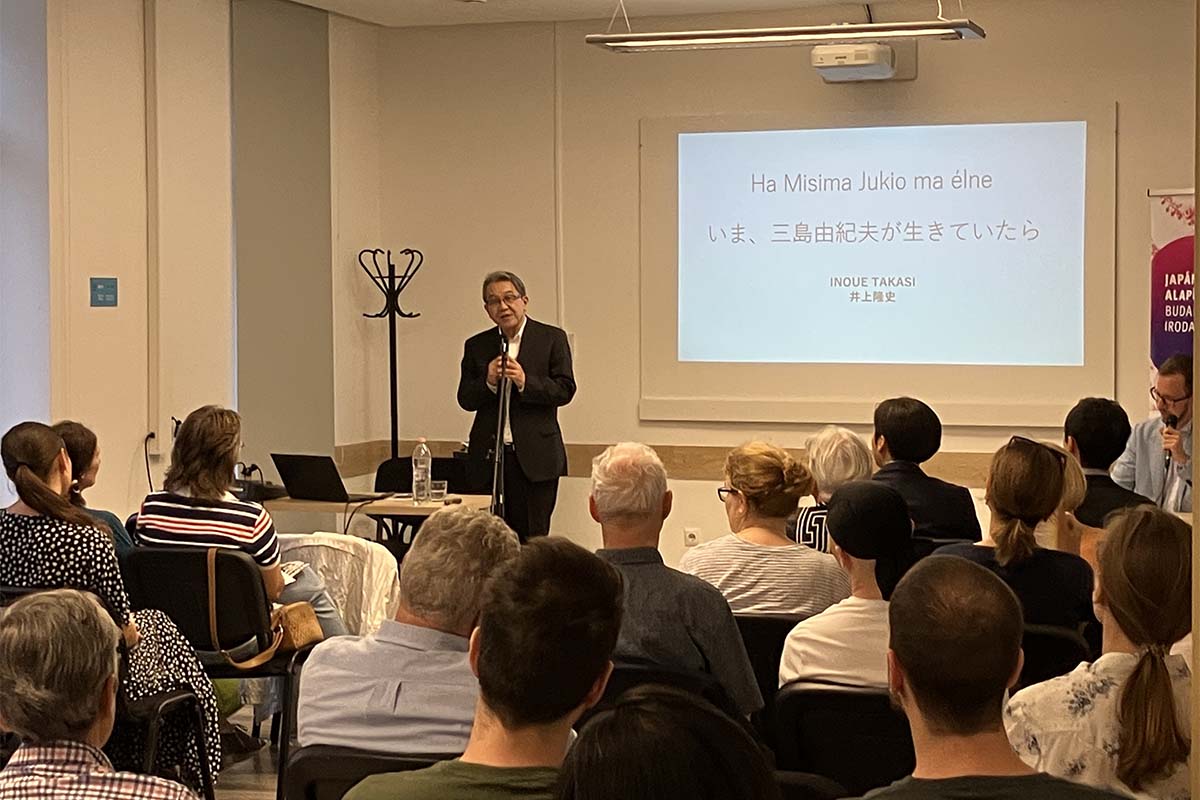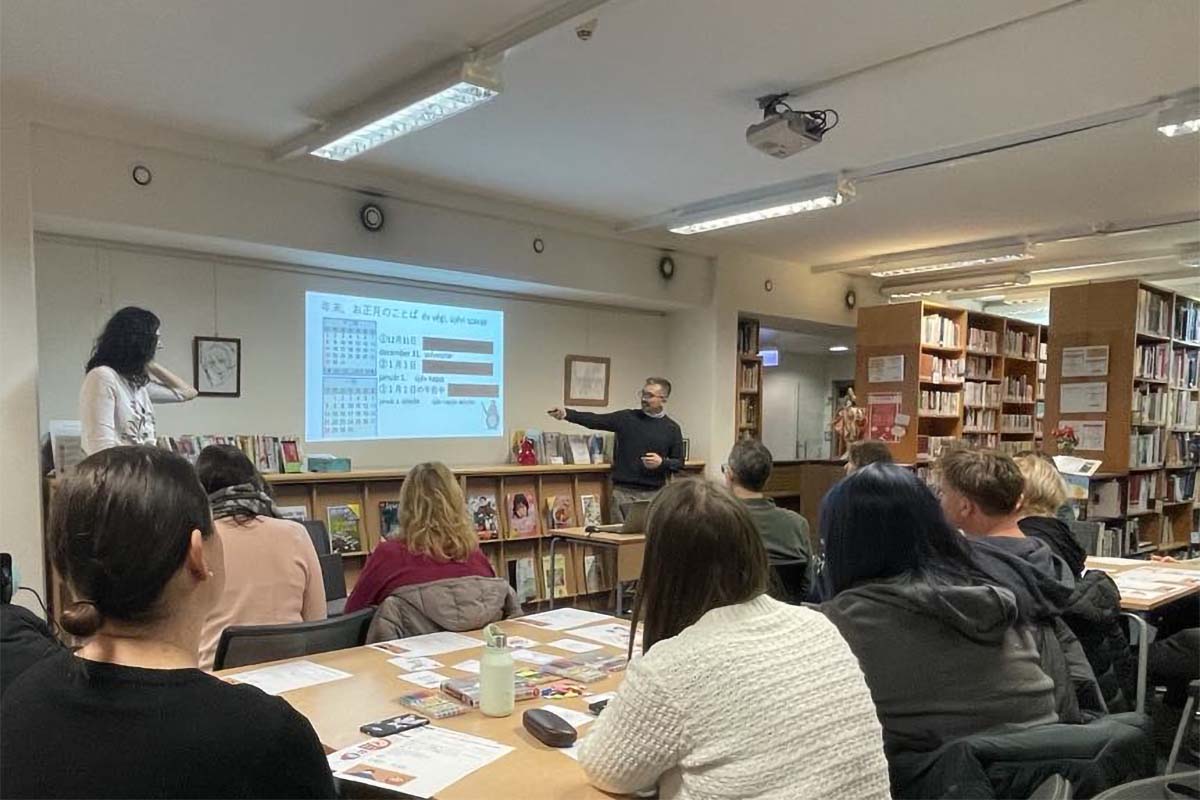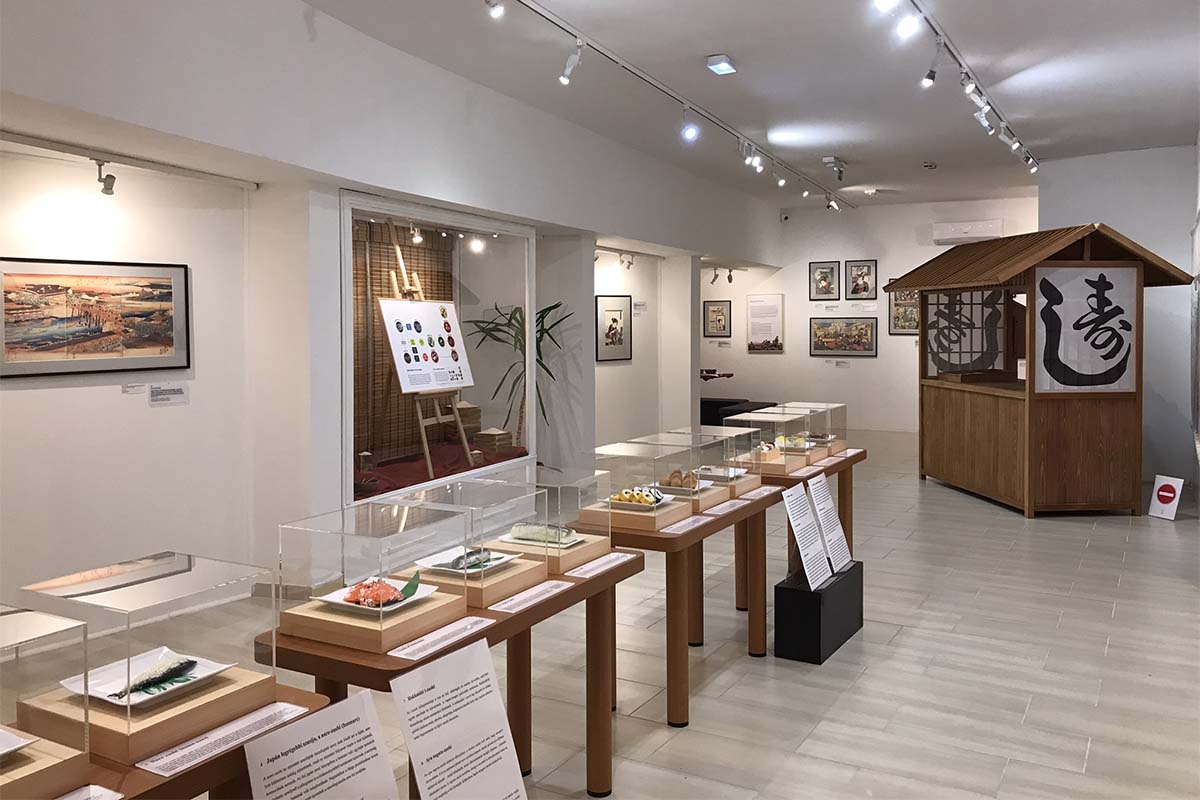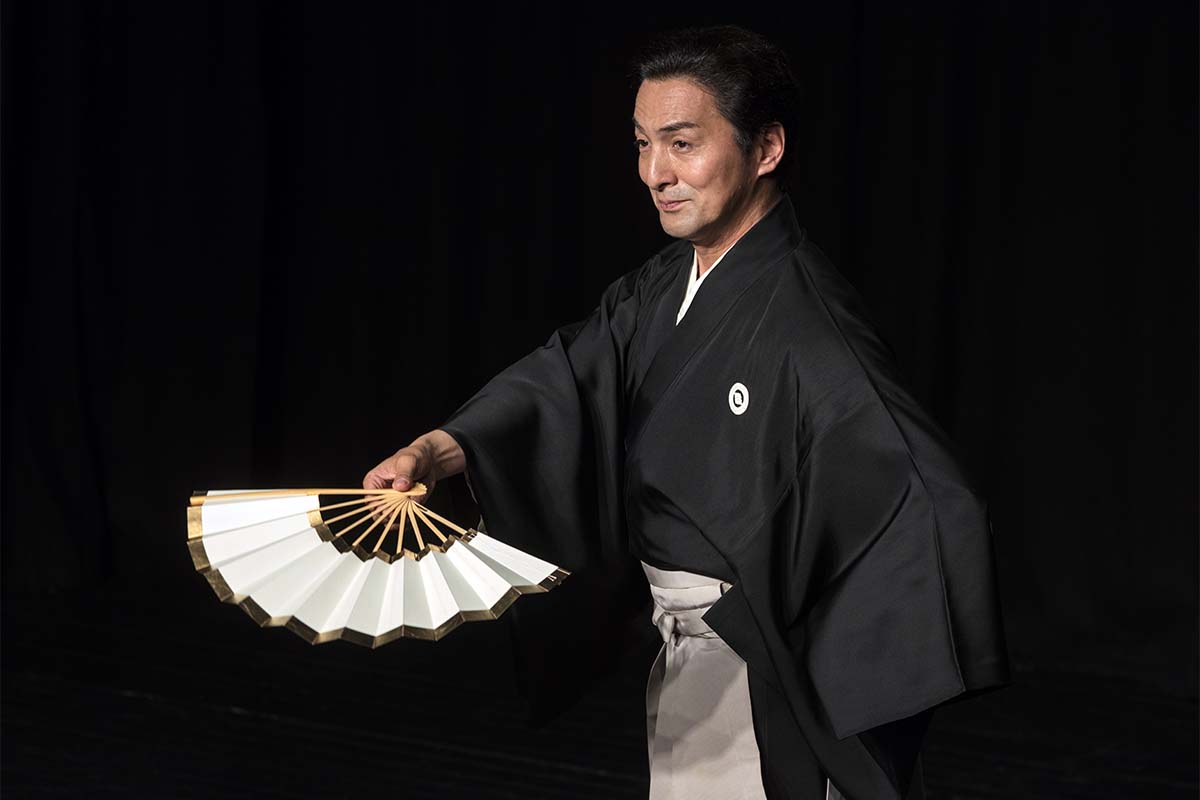Founded in 1991, the Japan Foundation’s Budapest office serves Hungary and 12 countries across Central and Eastern Europe.
Literature
The office runs a public library on Japan and the Japanese language, and it supports the publication of Japanese literature in Hungarian and other regional languages through grant programs.
Momentum is strongest around books. In September, readers packed the room for novelist Mieko Kawakami’s talks in Budapest, drawing more than 260 attendees to listen, ask questions and linger—a snapshot of how Hungary is reading Japan with fresh curiosity. In 2025, the centenary of Yukio Mishima’s birth, the office hosted lectures by the scholar from Japan on modern Japanese literature and his work. “Through such initiatives, we aim to present a broad spectrum of Japanese literature to the Hungarian public, from classical to contemporary,” said Masanori Takaguchi, director of the Japan Foundation, Budapest. “Interest in Japanese literature is high in Hungary,” added Kohei Oki, deputy director.
Literary exchange runs both ways. Hungarian author and this year’s Literary Nobel Prize winner László Krasznahorkai stayed in Japan as a Japan Foundation fellow in 2000 and 2005; his experiences inform “A Mountain to the North, a Lake to the South, Paths to the West, a River to the East,” also published in Japanese.
The Budapest office’s mix of programs helps people across Central and Eastern Europe understand Japan in ways that are personal and lasting, while supporting practical exchange, from welcoming visitors to shaping tastes in food and travel.
To deepen understanding, the office regularly invites Japanese and local lecturers to bridge popular culture and tradition, from the “Attack on Titan” manga to the history of ninjas and customs around mourning and remembrance.
Visual arts, performing arts and film
Exhibitions, performances and screenings carry the story beyond the page. Recent collaborations with the Hungarian Museum of Trade and Tourism brought “I Love Sushi” in 2023 and “Japanese Design Today 100” earlier this year. In November, nihonga painter Mayumi Goto will lead workshops in Hungary, Bulgaria, Czechia and Slovakia. “We support various performances with a grant system,” said Takaguchi. The foundation aims to have one stage performance each year, such as a traditional nihonbuyo dance by Rankoh Fujima or a concert by violinist Ikuko Kawai with the Hibiki Duo.
Film remains a reliable doorway into culture. “Every year we organize a Japanese Film Week with a local cinema, and we also run an online streaming platform with a rotating selection of films with subtitles in local languages; in August we held an open-air screening of ‘Before the Coffee Gets Cold’ for about 500 viewers,” Takaguchi said.
Language and community
Japanese language specialists strengthen networks of learners, teachers and institutions across the region. For learners, classes and exchanges run online and in person. “Let’s connect! Central and Eastern Europe and Japan” links participants across borders, while book and cinema clubs in Japanese build confidence and community alongside a video contest. For teachers, the office hosts seminars and symposia, including a large annual training that brings Japanese-language instructors from across Central and Eastern Europe to Budapest for learning and collaboration. For institutions, the team offers discussion and support as programs take shape.
By the numbers from 2021 to 2024
- Learners in the region grew: 37.7%
- Teachers increased: 32.4%
- Institutions offering Japanese: 25.2%
In Hungary, overall numbers are stable. Respondents cite three core motivations: interest in history, literature and arts; enthusiasm for anime, manga, J-pop and fashion; and fascination with the language itself.
People and stories
What begins with a book talk, a film night or a studio workshop becomes a connection. The Budapest office’s mix of programs helps people across Central and Eastern Europe understand Japan in ways that are personal and lasting, while supporting practical exchange, from welcoming visitors to shaping tastes in food and travel. “We believe our activities help people in Hungary and Central and Eastern Europe understand Japan well,” Takaguchi said.
+36 1 214 0775
[email protected]
www.japanalapitvany.hu







